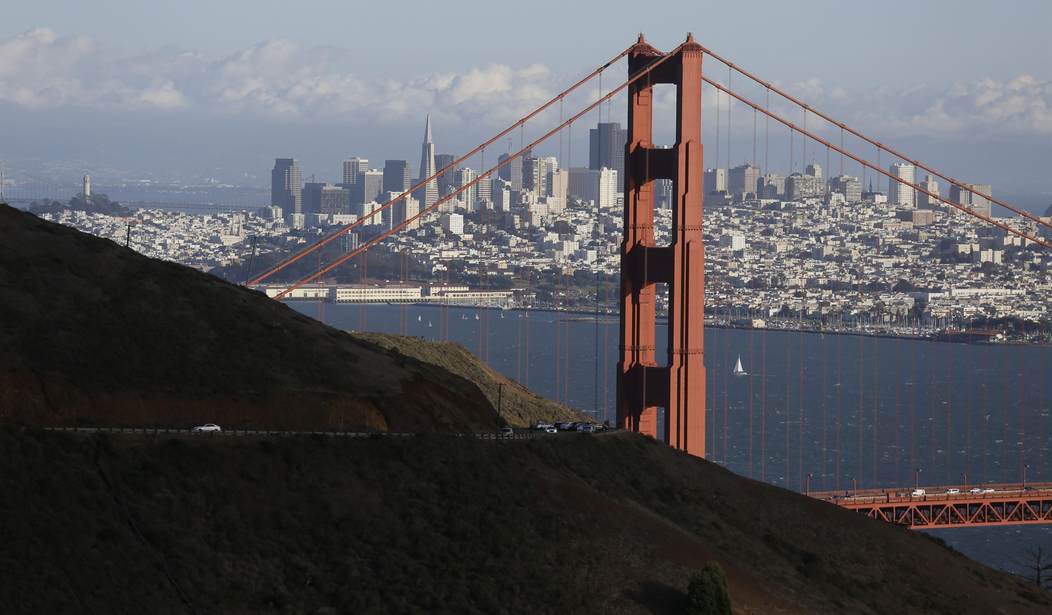Stop me if you've heard this before -- and you've definitely heard this before, repeatedly: Walgreens has announced the shuttering of 12 additional brick-and-mortar locations in San Francisco, citing the unsustainability of continuing to operate them in the red. As this local news report points out, the company didn't explicitly mention endless retail crime as a contributing factor, but area residents say the issue is an unavoidable reality. The on-air package even referred to it as a "major crime spree." Remember, popular fast food chain In N Out shut a location in the Bay Area last year for the first time in the company's history due to nonstop crime.
But the oppressive regulatory environment is very much a policy problem that Walgreens did highlight in going public with their decision:
BREAKING: Walgreens to close 12 more San Francisco stores next month pic.twitter.com/4b8XaHsYLN
— End Wokeness (@EndWokeness) January 12, 2025
That final soundbyte from a woman worried about a diminished quality of life speaks to the real toll such closures take on communities. Leftists like to blame corporate greed, but when stores cannot operate due to failed policies and rampant crime, such conditions forces businesses' hand. The fallout impacts employees whose places of business no longer exist, as well as neighbors who rely on the locations for convenient access to life essentials and medications. "Progressive" urban rot has real, tangible victims. California's crime situation may improve, thanks to a successful ballot initiative that effectively re-criminalized crim. A new, serious District Attorney in the state's largest city could also help -- but that actual progress may take some time, undoing all the harm inflicted by years of "progress." As for problematic regulations, that's also the driver of California's insurance nightmare that has been thrust front and center by the wildfires. The Wall Street Journal editorial board explains the dynamics:
The politicians are blaming each other for the losses in the horrific Los Angeles wildfires, but the truth is that mother nature can be merciless. The stories about water shortages are conflicting and need more time to sort out. But it’s not too soon to note that California’s politicians have fueled a five-alarm insurance-market crisis that will hurt homeowners and taxpayers across the state once the fires have died out...insurance losses will be in the tens of billions of dollars or more. The damage could topple the state’s undercapitalized insurer of last resort, FAIR. Private carriers are almost certain to increase premiums, cancel policies or withdraw from California. Insurers had already scrapped hundreds of thousands of policies and limited coverage in wildfire-prone areas. Democrats blame climate change, which has become an all-purpose excuse for any disaster-relief failure. But the real insurance problem is that state regulators have barred insurers from charging premiums that fully reflect risks and costs.
California is the only state that heretofore hasn’t allowed insurers to incorporate the cost of reinsurance in premiums. Until this year, it had also prohibited insurers from adjusting premiums by using the standard industry practice of catastrophe modeling to predict a property’s future risk. Insurers could only assess premiums based on historical losses. As a result, insurers are paying out $1.09 in expenses and claims for every $1 they collect in premiums. This is financially unsustainable, which is why many have pared coverage in areas at high fire risk with expensive homes. State Farm dropped nearly 70% of policy holders in one Pacific Palisades neighborhood where the average home price is $3.5 million. FAIR now covers about half a million homeowners who can’t obtain private coverage. Its exposure has ballooned to $458 billion as of last September from $153 billion four years earlier, with $5.9 billion in exposure in the Palisades. Yet it has only about $700 million cash on hand to pay claims.
BREAKING: Man who kiIIed a 14 year old in New York has long violent criminal history, including st-bbing someone *FIVE DAYS* before. pic.twitter.com/k9kTIDlZBD
— End Wokeness (@EndWokeness) January 12, 2025
A violent and unstable criminal with multiple prior arrests, who'd just stabbed someone randomly days prior, was out on the streets to randomly stab someone else -- this time a child, and this time to death. Democratic Congressman Ritchie Torres (who has been refreshingly sensible on issues like public safety and Israel, and who has increasingly aggressively called out left-wing excesses) is asking the right questions and making the right points:
I want to live in a New York where no mother has to bury her own child because he was stabbed to death by a violent repeat offender who should have never been allowed to roam the streets in the first place.
— Ritchie Torres (@RitchieTorres) January 12, 2025
The lesson learned from the preventable murder of Caleb Rijos (14) is…
I find it inexplicable that the murder of children of color like Caleb Rios at the hands of violent criminals like Waldo Mejia never seems to generate nearly as much attention and outrage as cases of police misconduct.
— Ritchie Torres (@RitchieTorres) January 12, 2025
Is it not systemically racist to leave communities of…
Torres is rumored to be seriously mulling a gubernatorial challenge against hapless Kathy Hochul in the empire state. Conditions only improve when leadership and policies improve. Voters need to decide that existing bicoastal failures are intolerable, then act accordingly.

























